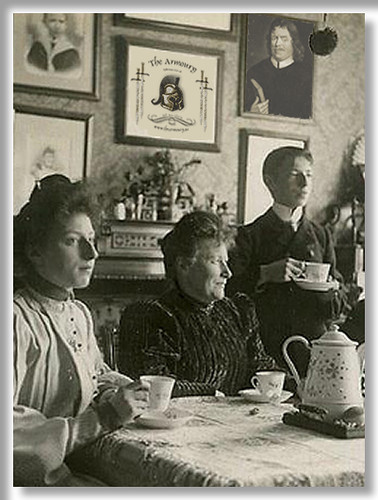
It’s just that simple – I like my theology like I like a good cup of coffee: strong and undiluted. That’s right, I’ll take a strong shot of sound doctrine over much of the watery preaching of today. Frankly speaking, all believers ought to desire the rich and robust doctrines of the Bible; or to put it in biblical language, genuine believers will want to go beyond mere pablum to the solid food of God’s Word. This is indeed the path of the believer’s progress: from conversion to death, all believers will live lives that are marked by theological growth. Such progress is a sign of sanctification; it is an indication of the Spirit’s indwelling and faithful work in our lives. The fact that such progress is expected in the genuine Christian’s life is made evident when the author of Hebrews declared: “by now you ought to be teachers.” By this statement he revealed that there should be a genuine expectation of theological growth with those who name the name of Jesus Christ (Hebrews 5:12).
But things can become unhealthy when we expect everyone else to be exactly where we are in our theological progress. In many ways a problem such as this is evidence of spiritual pride and impatience. It happens when believers become puffed up with their knowledge (1 Cor. 8:1) and fail to see that intellectual knowledge must be met with genuine wisdom – wisdom which seeks to take doctrinal knowledge and put it into practice in one’s daily life:
Philippians 4:9: 9 The things you have learned and received and heard and seen in me, practice these things, and the God of peace will be with you.
When Paul refers to “these things,” I am convinced that he is referring to the entirety of his epistle to the church at Philippi. Thus all of the doctrine that he gave to the church was to be prassete (practiced) among the children of God. This balance of knowledge and practical wisdom is needful, for as we make progress in our knowledge and sanctification, we must remain humble, comprehending that our progress is the work of God’s grace; we have no room for boasting in ourselves; we can only give glory to God. Therefore Christian forbearance is needful among the people of God (Eph 4:2-32, Col. 3:12, 2 Tim. 3:10, Gal 5:22). Without it, the church becomes an ugly place of one-upmanship and vile competition. The pride which underscores these things will only bring about fleshly fights, quarrels (James 4:1-6) and fruitless wrangling about words (2 Timothy 2:14).
Thus, there is a great need for patience as we deal with others. Now to be clear here, Christ and the Apostles often delivered very severe rebukes to the false religious leaders of their day: Galatians 5:12: 12 I wish that those who are troubling you would even mutilate themselves (NIV). But they also exercised remarkable patience with genuine believers and with the lost of this world. Even to the gnarly Corinthians, Paul was patient enough to give them milk, understanding that they weren’t prepared for the meat of the word:
1 Corinthians 3:1-3: 1 And I, brethren, could not speak to you as to spiritual men, but as to men of flesh, as to infants in Christ. 2 I gave you milk to drink, not solid food; for you were not yet able to receive it. Indeed, even now you are not yet able, 3 for you are still fleshly. For since there is jealousy and strife among you, are you not fleshly, and are you not walking like mere men?
Paul’s patience with the churches, as well as with unbelievers, gives us a very helpful example. In both cases, Paul dealt with people according to their station in life – faithfully ministering the Word of God, but doing so with patience and compassion. He reminds us that we must guard against theological arrogance when dealing with believers and unbelievers:
Titus 3:1-3: 1 Remind them to be subject to rulers, to authorities, to be obedient, to be ready for every good deed, 2 to malign no one, to be peaceable, gentle, showing every consideration for all men. 3 For we also once were foolish ourselves, disobedient, deceived, enslaved to various lusts and pleasures, spending our life in malice and envy, hateful, hating one another.
In many ways the posts dealing with America’s Altar to the Unknown Jesus, Parts I & II, were designed to encourage brethren to think about our need for patient endurance when proclaiming the Gospel to the lost. But I have added this final post in order to demonstrate the importance of patience in all facets of life: we must be patient towards all men, whether unbelievers or believers. To younger brethren, we ought to nurture them carefully, without trying to force feed them a 12 oz steak in one sitting (1 Cor. 3:1-3). To the unbeliever, we must be patient with them, remembering that we too were once foolish ourselves, disobedient, deceived, enslaved to various lusts and pleasures, spending our life in malice and envy, hateful, hating one another.
It is absolutely the case that we need to grow in our desire for the strong and rich doctrine that is supplied in Holy Writ – but we must be patient with others as we invite the lost, and even younger brethren, to the table of God’s robust truth.
